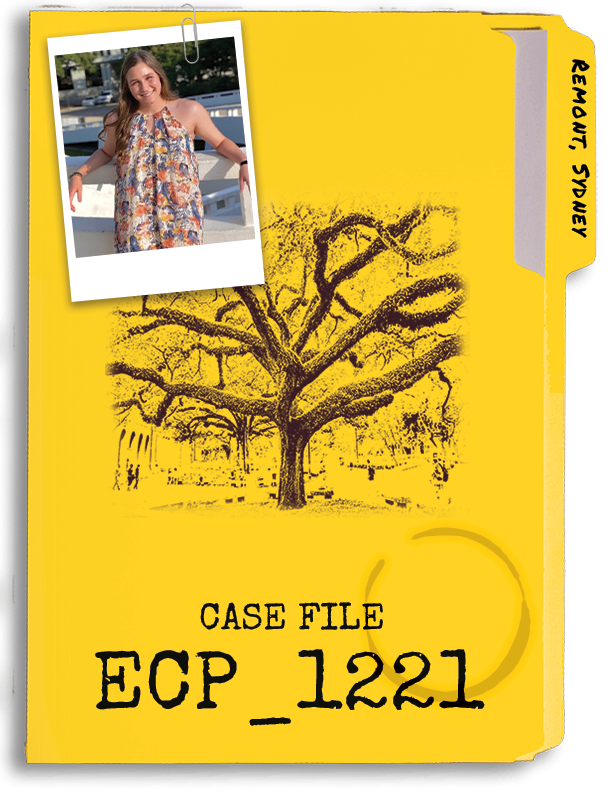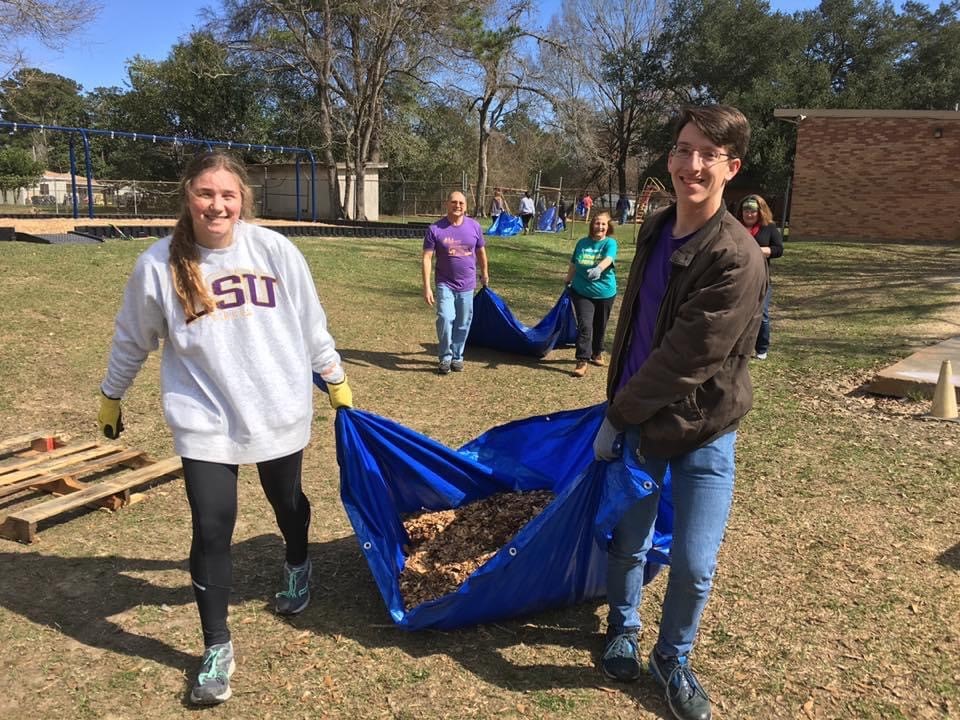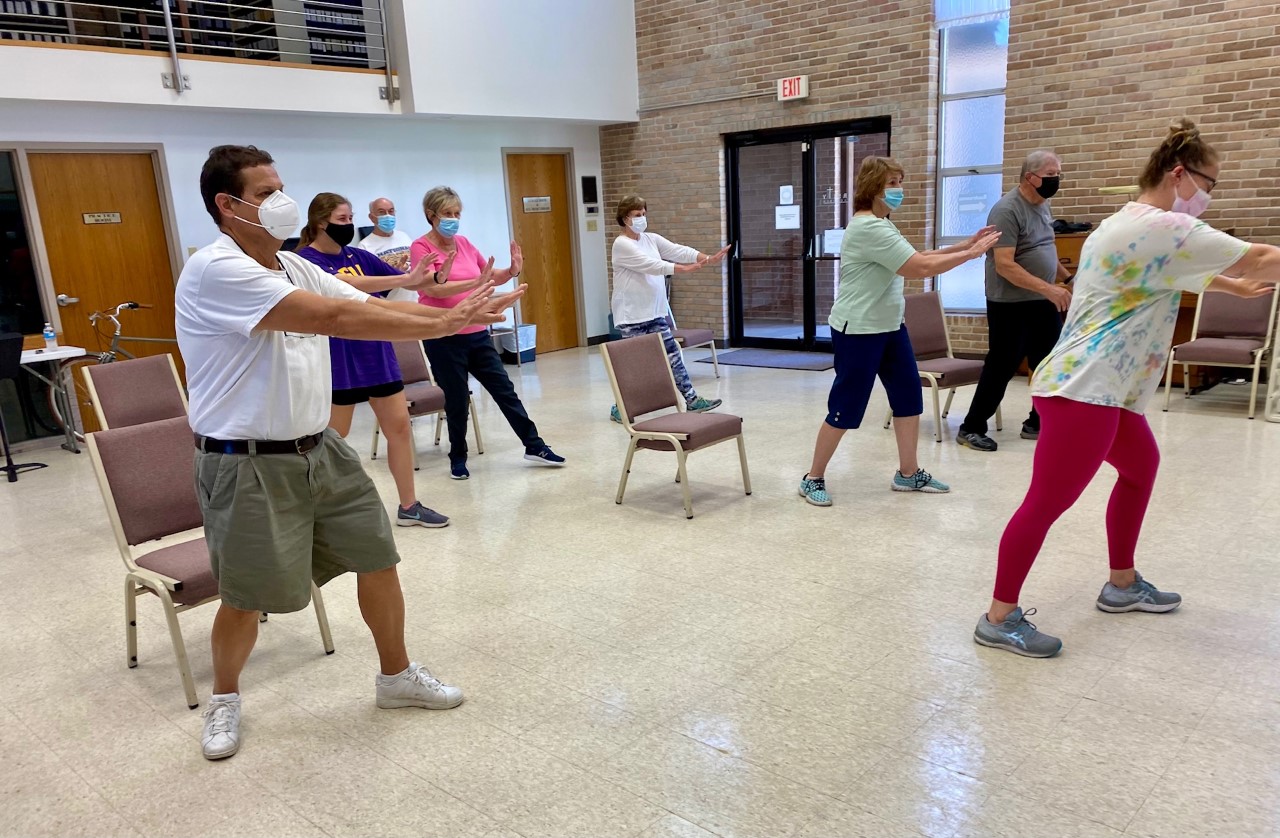ECP Service Dossier Spotlight Series: Sydney Remont, Fall 2021

CCELL: In your own words, what is an Engaged Citizen?
Sydney: An Engaged Citizen is someone who goes out into the community voluntarily sharing their time and individual talents helping others. These opportunities have a huge impact on Engaged Citizens and are generally very humbling during their interactions with people from all walks of life.
C: How did you get started working with the Engaged Citizens Program?
S: My sister actually invited me to a playground build with the LSU Community Playground Project for one of her engineering classes. I had so much fun interacting with the members involved and seeing the difference I was making firsthand that I wanted to do volunteer projects more often. After researching various clubs that I could join on campus, I immediately joined the Engaged Citizens Program because it provided additional ways for me to get involved around the LSU community.

This photo was taken before COVID-19 restrictions.Photo Credit: Sydney Remont
C: How did you first get involved with volunteering and service?
S: Volunteering has always been encouraged in my home. My parents have always volunteered in our schools, sports, and communities. To me, volunteering is a part of who I am. I’ve volunteered at different sports camps and Bible camps throughout middle school and high school, and when I got to college, one of my friends invited me to participate in Special Olympics. I had no idea what this organization was, but I soon found out that I would be getting to play sports with people who had different physical and mental disabilities. I was nervous to meet them, but whenever they realized that I was a new volunteer, they all ran to me and gave me big hugs and high fives. This organization has humbled me so much and has given me the opportunity to meet so many amazing people that have made a huge impact on my life.
C: What do you enjoy most about volunteering?
S: I enjoy getting to interact with different people. I am a very shy person when you first get to know me, but volunteering on a regular basis has allowed me to learn that I am very quick to form meaningful relationships with people, especially those that do not use formal means of communication. For example, for the Special Olympics Unified Tournament, I was partnered with Cassandra, who was non-verbal [because of] her Down syndrome. Even though I had never played bocce before, she was so excited to have me as her partner that every time I rolled the ball, she gave me a big high five to cheer me on. We made sure to high five and smile big at every turn so that we could always stay motivated. I was even able to learn a little bit of sign language so that I could communicate with her a little more. This experience taught me to try harder to make every person I interact with feel welcome because it only takes something as simple as a hug, a high five, or a smile to make someone’s day.
C: Did you have to adjust your service in the community because of COVID-19? If so, how?
S: I was fortunate enough to continue volunteering throughout the pandemic. Since I volunteered at a pediatric outpatient clinic, I had to take my temperature and wear gloves during my entire shift. Additionally, I was taking a service-learning course [KIN 2540] during the pandemic about recreational activities for people with special needs. It was online, so we had to adapt certain activities that we could do over Zoom. Creativity certainly played a huge part during this time. We played online board games, charades, made arts and crafts activities based on holidays, and were able to participate in the Boo at the Zoo drive thru trick-or-treating. These experiences and a positive attitude taught me to adapt to anything that comes my way.
C: What have you learned about the community that you serve as they responded to the COVID-19 pandemic?
S: I have learned that people are resilient when it comes to dealing with difficult times and that they are always willing to help their neighbors in need.
C: Why did you choose to take service-learning classes—since your Kinesiology curriculum
does not require it?
S: I choose to take service-learning classes because it allows me to give back to
the community as well as interact with other people who are passionate about giving
back to the community. During these classes, I made many new friends who share my
passion and drive for volunteering. Additionally, reflecting on my experiences and
sharing what I learned with my classmates while also hearing their stories allows
me to grow for future volunteer opportunities.

Photo Credit: Sydney Remont
C: What did you most enjoy about your service-learning experience? (Please list at least two experiences from a course/courses, and list their course numbers).
S: I really enjoyed KIN 2540: Introduction to Physical Education for Individuals with Disabilities [taught by Dr. Wanda Hargroder], which was based on recreational activities for people with disabilities. I took this course during the pandemic, and we were partnered with the BREC organization who runs camps for people with special needs. Most of the people who attended these camps were also involved in Special Olympics, so I enjoyed seeing them online since all of the Special Olympics organizations were cancelled during this time. I learned how to interact with special needs people, even those who use non-verbal cues as a means of communication, and they have inspired me to be a better person.
Another course I took was ENGL 2000: English Composition [taught by 2020 S-L Outstanding Faculty Award Winner Sharon Williams], and we were partnered with Connections for Life, which is an organization that helps formerly incarcerated women adapt to life outside of prison. I was able to work with them in their thrift store, and they really just shared their stories with me and enjoyed talking to me. It was very humbling to learn that people just look at them and refuse to give them a chance because they made a mistake earlier in their lives. This experience taught me that I need to look past a person’s background and focus on who that person is today and how he or she lives their life.
C: Do you think that you will continue to implement service-learning and volunteering in your future endeavors?
S: Yes! As I stated earlier, volunteering has always been a part of my life. My parents taught me that it’s just something you do - whether it’s giving back time or talents, there are always ways to get involved. In January, I will be attending graduate school to become an occupational therapist. There are many special needs camps that require volunteer OTs for their campers. This is certainly something that I would definitely be interested in doing.
C: What would you say to incoming LSU students to inspire them to participate in service learning?
S: Get involved! Not only is this an opportunity to meet amazing people, but the experience gained from the service is humbling and for some, life changing. Additionally, many clubs on campus require members to get service hours, so why not get credit for the Engaged Citizens program too. There are countless opportunities for interacting with your professors, organizations in the community, and people from all different backgrounds by becoming an Engaged Citizen. You can also improve your communication and leadership skills while making lifelong friendships and giving back to your community. Being an Engaged Citizen has definitely been a rewarding experience for me personally!